6 Ways to get the most from your coach
Are you getting everything that you can from your Badminton Coach
Do you feel that there is more that you and your coach could achieve?
The question is :- what to consider and what action to take ?
It’s a 2-way process
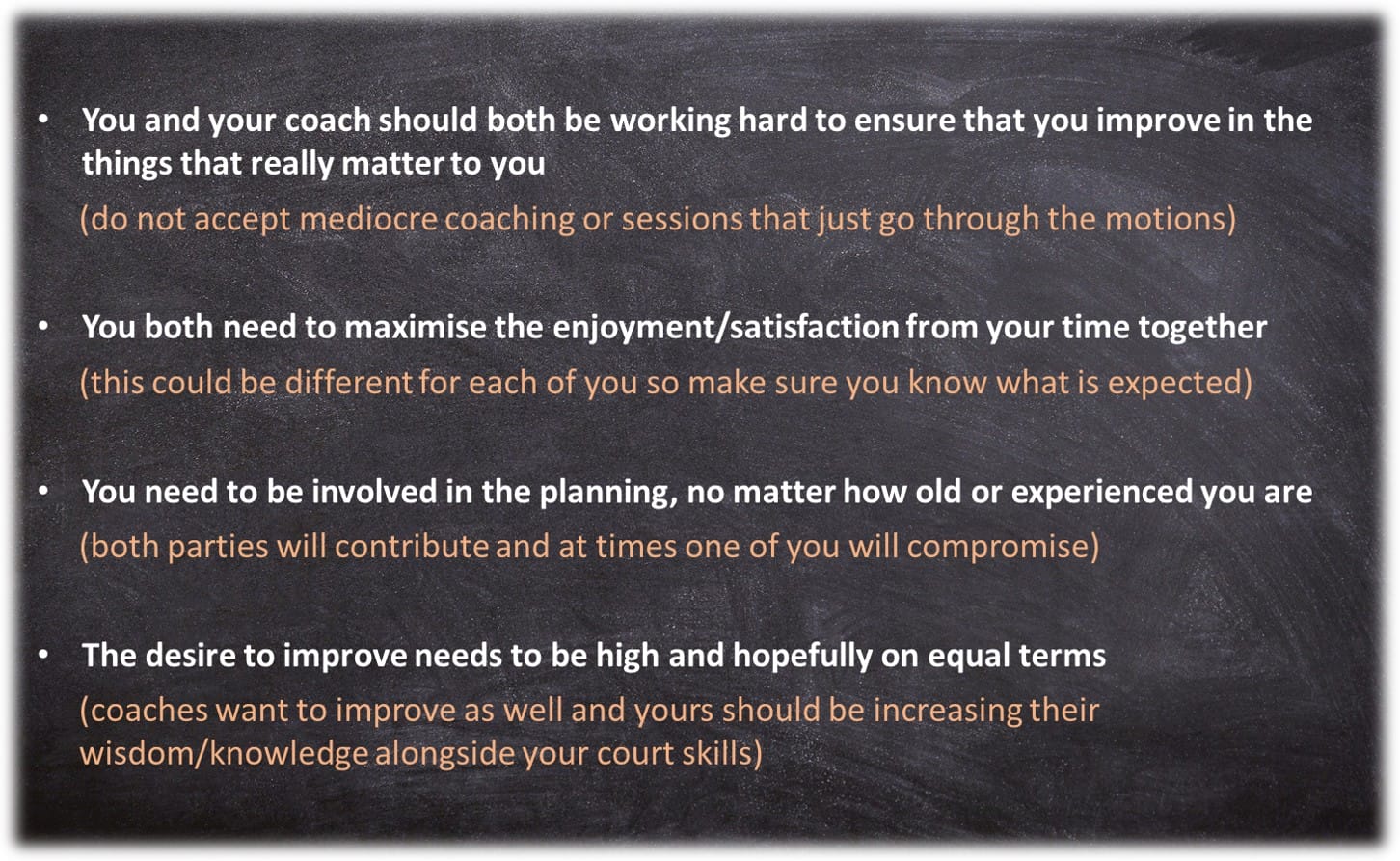
These tips will give you some ideas and guidelines to try out
There is no guarantee that they will all work, you may have to take the initiative to move things along
Remember, coaches are human too and have good and bad days just like you do
– – – – – – – – – – – – – – – – – –
1 Specific to you
2 Communicate
3 Observations – do they watch you
4 Goals that are known
5 Honesty and Openness
6 Thanks
– – – – – – – – – – – – – – – –
1 Specific to you
It does not matter if the Coach is your squad coach or your own personal paid coach, they should be coaching you and the things that apply to you.
It could be improving existing strokes and movements, learning new ones, eliminating or preventing faults, helping with tactical ideas and of course helping you grow as a person.
If you feel that this isn’t happening and that you are just being put through the motions, it’s time to consider what action to take.
You need to feel that every time they interact with you it is with the intention of developing you.
Do you always seem to do the same practices, the same drills, the same routines
When did you last learn somethimg new?
Be aware that some coaches may only be coaching you using practices that they like. Practices that worked for them when they were a player.
You need to ensure that they are working to improve you. How you do that starts now by answering these questions.
Consider how specific the sessions are to you:
- How often does your coach ask you what you would like to work on? It needs to be in advance of the session so that you can think and they can plan.
- Is everyone in the group always doing exactly the same practice? Maybe it’s the multishuttle Monday programme or the mid-week fast feet session
- Are you getting the same advice during every session…. “Move faster, try harder, no mistakes, etc”
- How often are you asked to review your the last 3 months training and development?
- Do you feel that they know why you are playing and what you want from badminton?
– – – – – – – – – – – – – – – –
2 Communicate
If you don’t try and communicate with your coach it’s going to be very difficult to get the maximum from them
Do you feel that you can ask your coach a question, that you will get a response and then be able to make progress? If you say “No” then you need to assess if you are really getting all you want from your coach.
Of course, you could be perfectly happy right now. I’m not suggesting that you need to start having 1hr long weekly meetings. However, I promise that within the next year you will need to talk with them about something.
Start your communications with simple conversations that explore what you are currently doing in training
It may not be easy sometimes talking with someone who your parents are paying, or if it’s the first time you have asked an adult a question. An adult that’s not your parent!
If you feel nervous or uncomfortable asking your coach these questions then look out for my future post “6 ways to ask your coach a question”
Imagine that they are sitting in front of you now
Rather than worrying about how to talk with your coach why not spend some time thinking about what you would say.
- write down now what you would like to improve
- why you enjoy their coaching
- what you would like them to do, change, include, etc
It’s time to start talking with your Coach
Try these opening lines to your conversations
“What should I be doing when …..”
“Can you help me to ….. when this happens”
“Please tell me how I can work to improve ……….”
Saying hello, goodbye, thanks great session, is not communication 🙂
– – – – – – – – – – – – – – – –
3 Observations
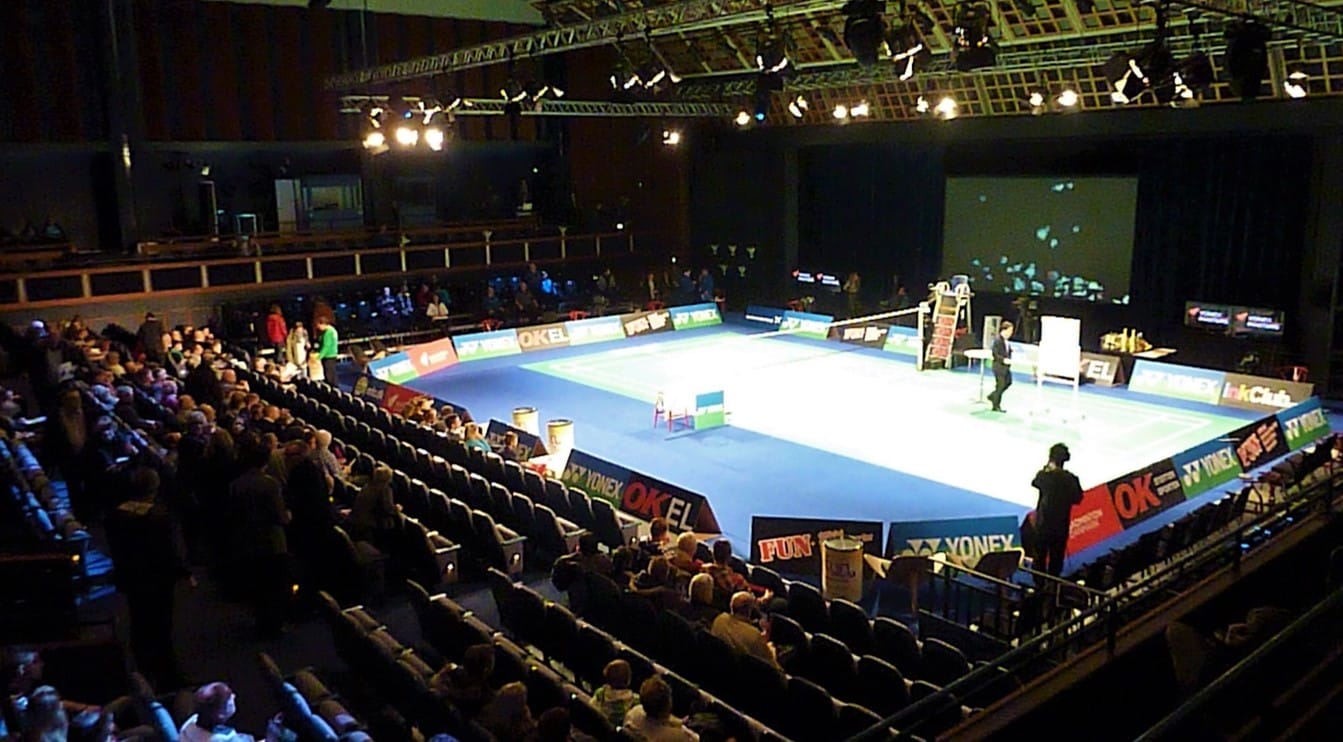
How often does your badminton coach watch you in competition?
It’s vital that they see you play in order to see how you are developing. I don’t just mean in practice routines/drills, that’s the least effective method.
Practice matches will help a little against other practice partners. It’s not as effective playing against them.
Competition play is the test. It really is the only real test.
In competition you will be required to control your emotions, decide your own practices, try to find ways of exploiting their weaknesses, that’s just the start of the things YOU will do. Your Coach needs to see how you handle these.
I’ve spoken to Coaches who have been surprised (sometimes speechless) at the observations that jump out when watching their players in a real competition. It certainly took me years to understand the value, despite being told this on many occasions by my mentor.
It is often the case that you will play differently in competition than in practice. Your mental state will certainly be different. The thrill of playing someone new and unknown is a great experience and it tests you as a PLAYER, not a practice performer!
In order for you to get the maximum from your coach they must see you play in a competition
– – – – – – – – – – – – – – – –
4 Goals
How many of you have asked your coach “what are we trying to achieve over the next few weeks?”
Do you and your coach have the same goals or aims?
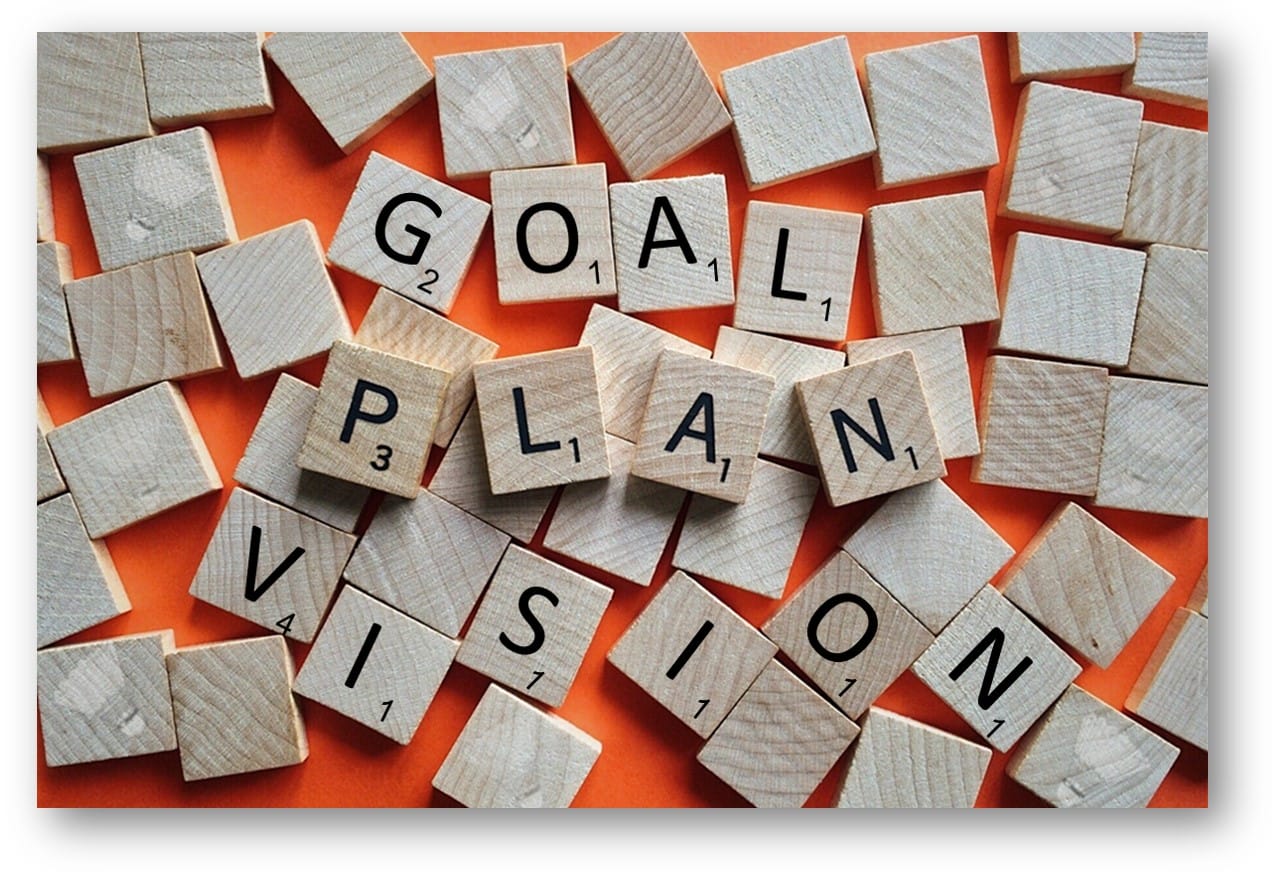 It’s important that they are at least similar and that both of you are aware of each others.
It’s important that they are at least similar and that both of you are aware of each others.
To get the most from your Coach they must know your goals. They don’t necessarily need to agree with them, just be aware of them!
You may have set some ultimate dream goals such as to win a National Title, play as No. 1 in your Team. Don’t feel embarrassed at having big goals. It could also be something on the court such as the ability to play a great crosscourt slice that is hit hard but lands before the service line, straight!
Talk with your coach so that they know your dream.
Then work out what other mini-goals could be achieved to get you closer to that dream
Your Task
Write down 3 goals now and email them to your coach
- Goal 1 .. something to achieve or learn in the next month
- Goal 2 .. a desire you have for the next season
- Goal 3 .. the dream you hold and maybe your coach doesn’t know
Your Coach needs to know your Aims and Goals otherwise you are working towards their target not your own
– – – – – – – – – – – – – – – –
5 Honesty and openness with your coach
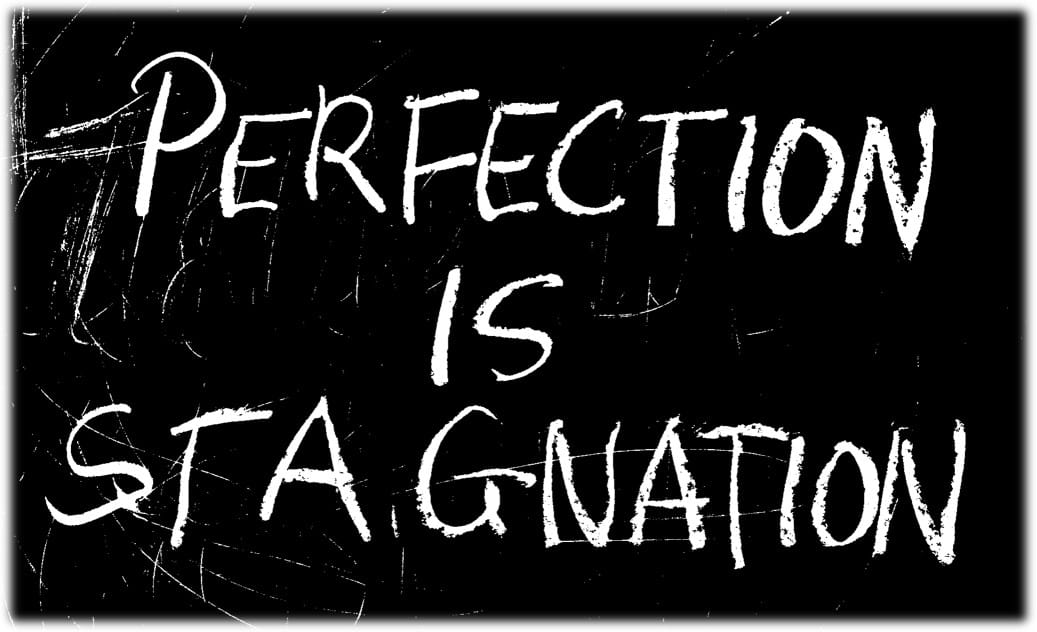
This is a tough one, or is it?
To maximise how your Coach works with you, my advice is to try and develop an open and honest working relationship with your coach. To achieve this you will need to be open-minded.
If you are nodding in agreement, be careful. It’s far easier to say than do 🙂 This applies to both players and coaches!
There will be times when
- You misunderstand what they say or ask from you, then you start a conversation in your head rather than asking them for more information
- They misunderstand you and your responses, especially when your physical reaction looks like a negative to them
- They set a target that is too high for you and get upset when you appear not to try for it. However, they didn’t expect you to reach it, just to try to achieve it.
- Something off the court has happened and it changes how one of you behaves but neither of you tells the other. Maybe your Coach will have you explain to you that they are human and have tough days as well
- You want to do your favourite practice and they want to work on something else. Who then decides what to do?
Think about these statements and see how you would react if your Coach said ….
- That movement is good, but it needs to be much faster, give me more!
- You need to get fitter before I will teach you any new skills
- You need to give me more feedback if I am to help you
- Can you send me some ideas that we should work on this season
- I know that you don’t like this practice, but it’s important because it works
How would you react to these statements, what emotions do they react in you?
– – – – – – – – – – – – – – – –
6 Thanks
Communicate your gratitude, always
Saying thank you can be done in many ways. Showing your appreciation can work wonders and may motivate your coach to work that little bit more enthusiastically than normally
A smile 🙂 and a high 5 is as good as a present. Saying thank you can be done in many ways.
I recommend sending them an end of season note explaining all the things that have happened
 Why your Badminton Coach needs your thanks (or any Coach)
Why your Badminton Coach needs your thanks (or any Coach)
- They will always be interested in your thoughts, especially if you include some targets or expectations for the next season or session
- It will motivate them
- They need to know if they have helped you not just on the court but in life. You may be surprised how coaches have this as an aim
It’s also important to thank your coach when you leave them and go to another
Even if you have split because of different aims and viewpoints, I’d still recommend sending a note if you think they developed you. Think of all the good times, the progress you made while on court with them, the experiences they created. Often the good times are forgotten at the end of a coach-player relationship.
You never know when you may need their help in the future. Often your coach can help with references, help with advice or just a friendly chat.
Final thoughts
A motivated Coach and Player can ….

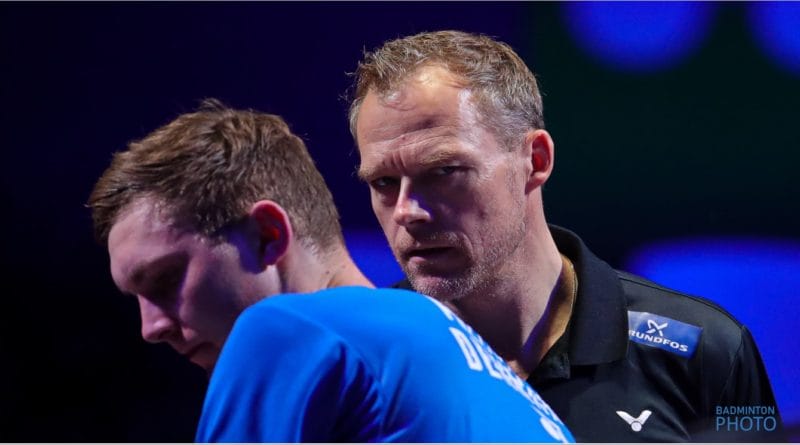
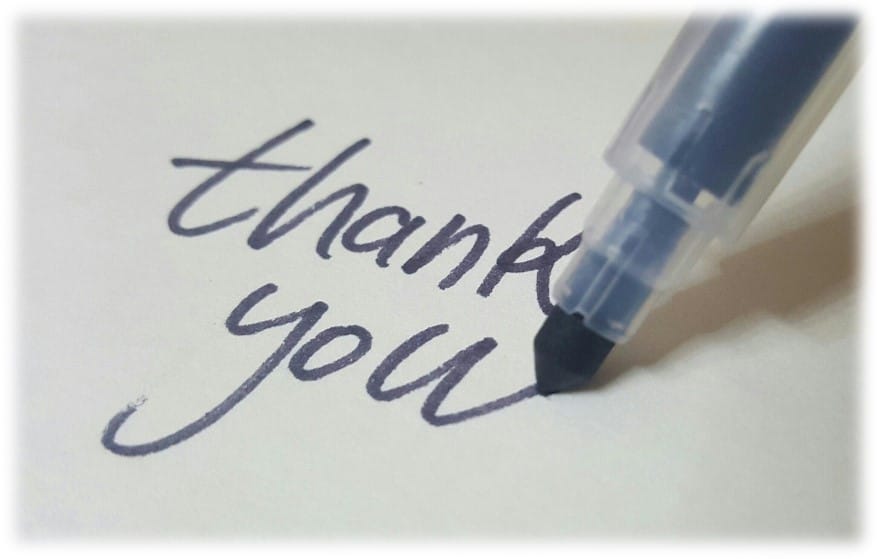 Why your Badminton Coach needs your thanks (or any Coach)
Why your Badminton Coach needs your thanks (or any Coach)

